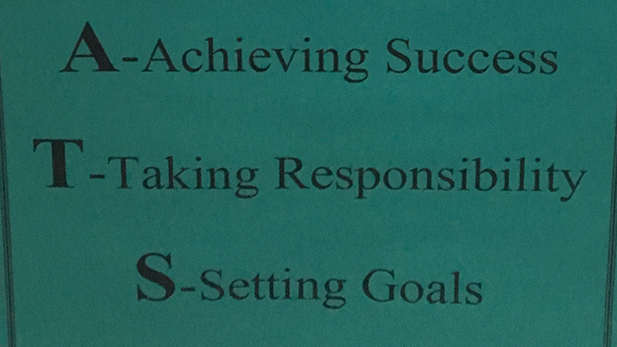
Listen:
The Sunnyside Unified School District rebooted its Alternative to Suspension program a year ago after it was eliminated by budget cuts.
The program is often the final option for students on the path to dropping out.
“These are what you would call, most of the time, those frequent fliers, and as you start digging or peeling the onion with those kids, they have other issues,” said Eugenia Favela, assistant superintendent for student services in the district.
Students in grades 7 through 10 who have had multiple suspensions or are at risk for being barred from school for the rest of the year or semester can be eligible for the program.
About 20 students have gone through the program since it restarted with mixed results. Some transitioned successfully back to a district school, but a few were unable to complete the program. The district does not share the exact number of students to protect their identities.
This year, at least nine students are on their way to successfully completing the program, said counselor Kara Parkhurst.
The students come to class at what used to be Los Ranchitos Elementary School before it was closed. Each day includes time for an online math and language arts program, counseling and life skills lessons.
Teacher Melissa Molina-Garcia often starts the day with current events. She pushes each student to share their opinion on everything from police shootings to college sports scandals.
“I like the fact that it’s not punitive, that I can actually do something to help them, that I can correct the behaviors that got them here in the first place,” Molina-Garcia said.
The one-on-one attention is a luxury she did not have as an administrator at a large middle school in another district.
“Each situation with each kid is completely unique and different,” Molina-Garcia said. “You have to understand what is going on at home.”
Sunnyside is one of several districts in Arizona and around the country that is re-evaluating the effectiveness of out-of-school suspensions.
“Research shows that kids don’t come back better behaved. They usually are worse for the wear,” said Daniel Losen, director of the Center for Civil Rights Remedies at the University of California Los Angeles. He has studied school discipline since the 1990s.
He said teachers who can engage students in school are more likely to change their behavior and improve their academic performance.
Alternative to Suspension was originally funded by a Safe and Supportive Schools grant from the U.S. Department of education. When that ended, the district absorbed the costs of the program until it was eliminated by budget cuts in 2012.
Favela said the district hoped to grow the program to accommodate more students and offer services for students with special needs, but an uncertain budget makes that unlikely for the near future.
The program is still too new to show definitively whether students that go through the alternative to suspension are more likely to stay in school long-term.
“Right now the measure of success is they’re doing what they’re supposed to do. They’re showing up, they’re making an effort,” said Favela.
She said the district will track the students that stay in the district after they transition from the program.
'They taught me to, like, be me'
Santiago Gallegos, 13, said he ended up suspended from school because he followed in the footsteps of his older brother.
“He was bad, so I had to be bad,” Gallegos said.
In class, Santiago is reserved. He likes to listen to “oldies” like Tupac and Boys II Men while he works on his assignments.
Occasionally Santiago said he gets frustrated – wants to punch something – but said he has learned to cool down by asking to be excused, talking out his frustrations with the class monitor and returning to class.
His teacher pointed this out to other students in class.
“If you recognize those behaviors, right, and you get them under control, that’s going to help you not get in trouble,” Molina-Garcia said. “Good job, I’m very proud of you.”
Santiago said he plans to start high school next year at Desert View or Sunnyside. He will be back around his old friends, but said he has learned he doesn’t have to put on a front.
“They taught me to, like, be me, and not have to fill in for someone else, to be somebody better or worse.”

By submitting your comments, you hereby give AZPM the right to post your comments and potentially use them in any other form of media operated by this institution.